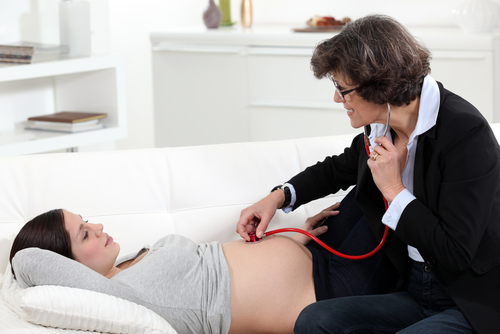 Preeclampsia can be very dangerous for both unborn babies and their mother - affecting organs and even causing death – and it can often go unnoticed by mums-to-be. While it can be diagnosed by your GP or midwife via a blood test, urine sample or blood pressure reading, there are things you should watch out for.
Preeclampsia can be very dangerous for both unborn babies and their mother - affecting organs and even causing death – and it can often go unnoticed by mums-to-be. While it can be diagnosed by your GP or midwife via a blood test, urine sample or blood pressure reading, there are things you should watch out for.
Here are signs you need to watch out for when it comes to preeclampsia
Intense pain in your stomach
Watch out for intense pain in your abdomen. While it may be simply indigestion, it is important to get it check out.
Swelling
Swelling in your hands and face, especially around your eyes, is one of the most common ways of noticing if you have preeclampsia, although not every expectant mother will experience it.
Nausea
If you suddenly start feeling sick and vomiting in the last trimester you should call your doctor. While it may just be something you ate it is always vital to let your caregiver know.
Weight gain
Obviously weight gain comes part and parcel with pregnancy but preeclampsia can cause you to experience weight gain rapidly due to water retention. Tell your midwife or GP if you are putting on more than five pounds a week.
Vision
Preeclampsia can affect your vision causing you to see spots or experience blurriness, light sensitivity or partial or total loss of sight. Call your GP immediately if you are experiencing any of these.
Headache
Headaches can come and go during pregnancy, but if you are suffering from preeclampsia you might experience one that doesn’t give you relief even after taking something.
Breathing
Another sign of preeclampsia is difficulty breathing: being short of breath, panting or gasping. While this can be pretty common during the late stages of pregnancy due to the position of the baby, always tell your midwife about it.
While there is nothing you can do to avoid getting it, making sure you don’t miss your antenatal appointments and share any concerns with your midwife or doctor will help to catch it before it gets too severe.







